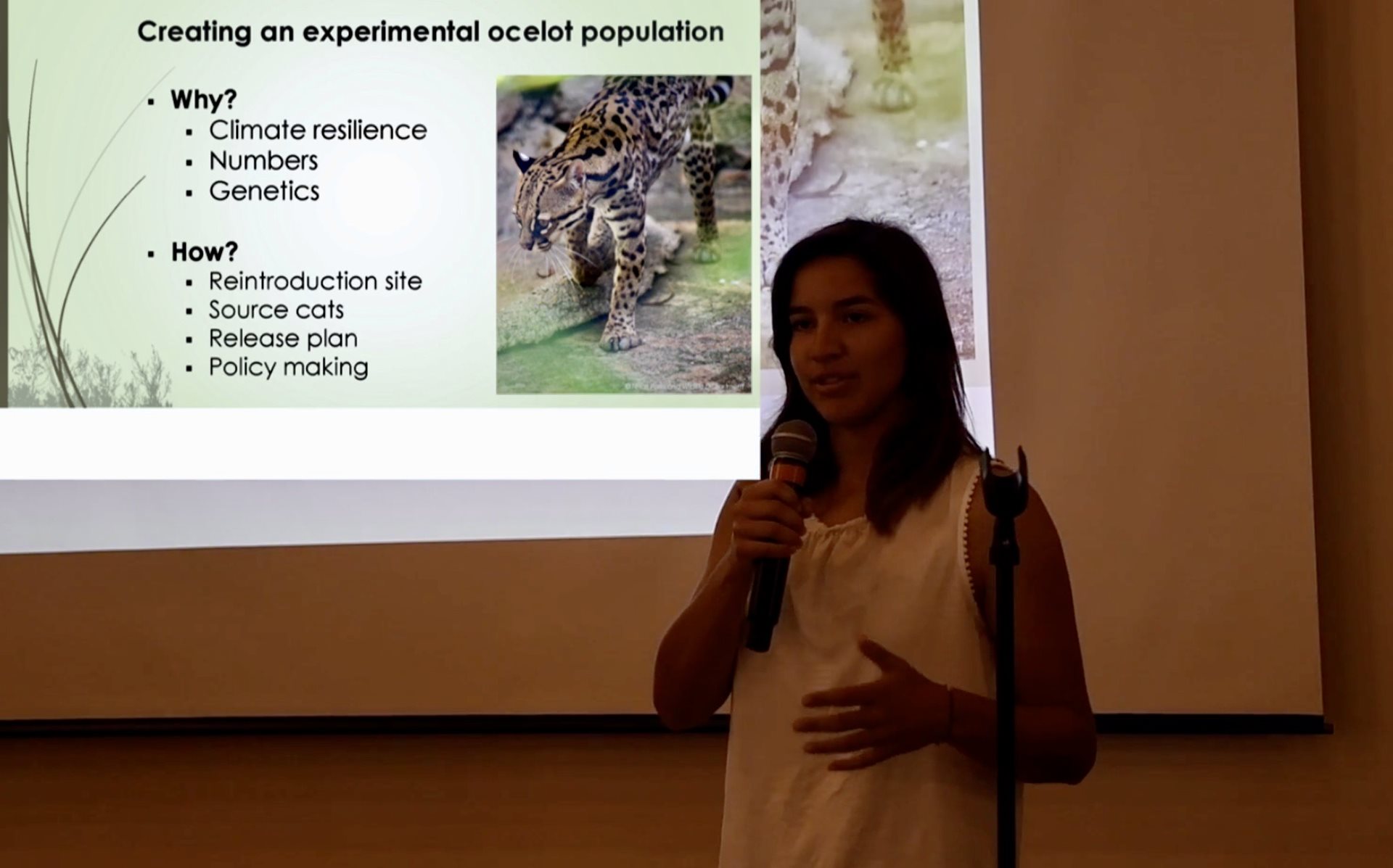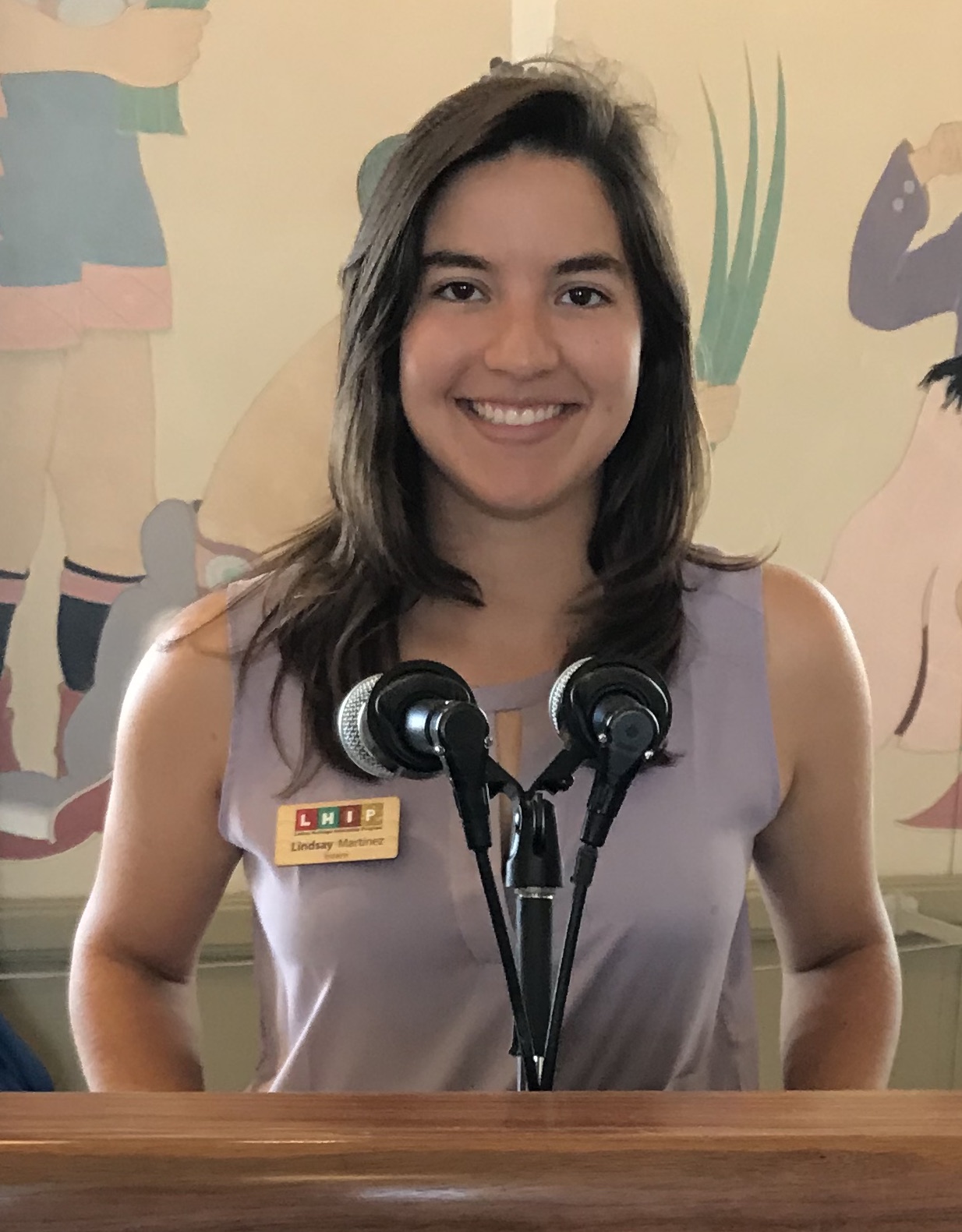October 2022

Grad School Deliverables: Presentations and Papers
Lindsay Martinez
One way to measure one’s success in academia and graduate school is with the creation of publications or presentations. I’ve heard from colleagues, acquaintances, and friends about the importance of publishing peer reviewed articles to boost a resume for future career opportunities, for example. I’ve also heard about signing up for professional presentations to share about your work, get your name out, and maximize possible chances for networking with potential employers or academic advisors. While I think it is exciting to have success with publications and presentations, it also feels like one of the most intimidating parts of graduate school.
I’ve personally already been involved in a pair of peer-reviewed scientific papers stemming from research I participated in during college. In that research project, I did lots of field work, lab work, and data organization to study the health of two species of zebras in Kenya. While a doctoral student led that research project and drafted the papers, I provided some review on the papers and some suggestions for them. The papers worked through the review process (which I learned can be a really lengthy, challenging, and sometimes frustrating process) and were ultimately published. It was pretty cool to see my name finally come out as a co-author in a
scientific journal, though my real interest is in applied wildlife conservation, not just basic research.
While I am more interested in making my career focused on on-the-ground projects that contribute to conservation than in conducting publishable research, I am working to appreciate how these two can go hand in hand. In my current graduate research project, I am studying the possibility of reintroducing a population of endangered ocelots into some of the cat’s historic but now unoccupied habitat in Texas. I’m excited about a future where this project actually gets implemented and Texas starts getting repopulated with ocelots. Before then, I have to work with my partners on producing and publishing research that can support that possibility. This process goes well with my requirement to produce a thesis for my master’s degree in Rangeland, Wildlife, and Fisheries Management. I expect it will be challenging to go through all the elements of the peer-review process to publish papers, and I hope that I can persevere through any challenges and not get discouraged if things take a long time. I’ve heard about people still trying to get their articles accepted and published years after they earned their graduate degree, and that type of long-term struggle sounds grim to me.
Another part of producing results in graduate school is performing professional presentations. I have found it challenging in graduate school to want to speak at national, state, or regional conferences about my project. I always feel like my project is not far enough along to really share anything about results. I am happy to talk about the big picture of the project, but I’m afraid to explain that the project is not complete. I’m guessing many other graduate students feel the same way and are balancing the desire to present professionally with the fear that they just do not have enough to share yet. Even though it probably would have been a good experience, I decided last year not to attend a conference because I felt embarrassed to go there without being a presenter. I wonder if other graduate students have gone through this, too. Though I haven’t stepped up to larger presentation stages, I have participated in Three-Minute Thesis (3MT) competitions organized by Texas A&M and by the East Foundation, a conservation organization that I work with. These 3MT opportunities provide the opportunity to present in front of a smaller audience of other graduate students, and other audience members who understand we are in school and our research is a work in-progress. I highly enjoy public speaking and think it is interesting to broadly explain my thesis project in just three minutes. I hope that these lower stake presentations will prepare me for bigger scale presentations in the future where I feel like my work has progressed to a place where I can really explain the findings and conclusions.
In graduate school, it feels like there are lots of opportunities and expectations related to publishing and presenting research-and lots of encouragement to do it. It is difficult to find a balance between feeling like a student who is still learning and feeling like an expert who should be educating others on my research. While I still have some fears about going through the publishing process and presenting my work to bigger audiences, I take some comfort in thinking that many other graduate students are probably in the same boat as me.
